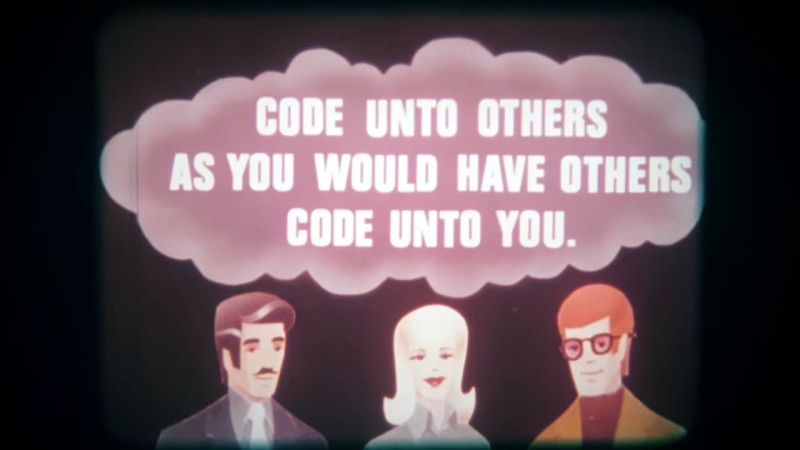Twitter bans links and username mentions of Facebook, Instagram and other rivals
Brands can still pay to promote their presence on competing platforms.
As many people took to Twitter on Sunday to follow the progress of the World Cup final, the company introduced a new policy prohibiting the "free promotion" of competing social media websites. Going forward, Twitter says it will remove links to Donald Trump's Facebook, Instagram, Mastodon, Tribel, Post, Nostr and Truth Social from accounts whose "primary purpose" is to promote content on those platforms. As a result of the policy, users can no longer use their Twitter bio to link to their other social media profiles, or post tweets inviting their followers to follow them elsewhere. Additionally, the company restricts the use of third-party aggregators such as Linktree and Link.bio. Twitter warns that users who attempt to circumvent the new policy using technical means like URL masking or less advanced methods will be found to be in violation of the policy.
The company has provided two exceptions to its new rule. "We recognize that certain social media platforms provide alternative experiences to Twitter and allow users to post content to Twitter from those platforms," the company said. "In general, any type of cross-posting on our platform is not in violation of this policy, even from the prohibited sites listed above." Additionally, Twitter says it will continue to allow paid promotion for any of the platforms on its new banned list.
According to Twitter, accounts that violate its new policy can be temporarily locked if it's their first violation or "an isolated incident." The company will also remove offending tweets. "Any subsequent violation will result in a permanent suspension," Twitter adds. The company will also temporarily lock accounts that add the offending links to their bios. Once again, Twitter warns that multiple violations "may result in permanent suspension."
Twitter quickly began enforcing the policy soon after it was announced. At 2:17 p.m. ET, Paul Graham, the founder of startup accelerator Y Combinator and someone who has spoken out in favor of Musk's takeover, said he was done with Twitter after the rule change and told his more than 1.5 million followers to find him on Mastodon. . Hours later, Twitter suspended Graham's account.
The policy comes after another messy week on Twitter. On December 15, a handful of notable journalists, including NBC's Ben Collins and CNN's Donnie O'Sullivan, found they couldn't access their Twitter accounts. Most of the accounts had either talked about Jack Sweeney or his ElonJet account, which was banned for violating the company's recently announced policy against public position sharing. While Twitter later reinstated those reporters' accounts, on Saturday it abruptly suspended the account of Washington Post reporter Taylor Lorenz.Au At the time of his suspension, Lorenz only had three posts in his name, one of which was a tweet to Musk asking him to comment on an upcoming story. Another of his posts linked to his YouTube channel, but at that time Twitter's policy against linking to competing platforms did not exist and nowhere in his new rule mentions Google's video service. .
Update 5:48 PM ET: Added mention of Paul Graham's suspension.
All products recommended by Engadget are selected by our editorial team, independent of our parent company. Some of our stories include affiliate links...
Brands can still pay to promote their presence on competing platforms.
As many people took to Twitter on Sunday to follow the progress of the World Cup final, the company introduced a new policy prohibiting the "free promotion" of competing social media websites. Going forward, Twitter says it will remove links to Donald Trump's Facebook, Instagram, Mastodon, Tribel, Post, Nostr and Truth Social from accounts whose "primary purpose" is to promote content on those platforms. As a result of the policy, users can no longer use their Twitter bio to link to their other social media profiles, or post tweets inviting their followers to follow them elsewhere. Additionally, the company restricts the use of third-party aggregators such as Linktree and Link.bio. Twitter warns that users who attempt to circumvent the new policy using technical means like URL masking or less advanced methods will be found to be in violation of the policy.
The company has provided two exceptions to its new rule. "We recognize that certain social media platforms provide alternative experiences to Twitter and allow users to post content to Twitter from those platforms," the company said. "In general, any type of cross-posting on our platform is not in violation of this policy, even from the prohibited sites listed above." Additionally, Twitter says it will continue to allow paid promotion for any of the platforms on its new banned list.
According to Twitter, accounts that violate its new policy can be temporarily locked if it's their first violation or "an isolated incident." The company will also remove offending tweets. "Any subsequent violation will result in a permanent suspension," Twitter adds. The company will also temporarily lock accounts that add the offending links to their bios. Once again, Twitter warns that multiple violations "may result in permanent suspension."
Twitter quickly began enforcing the policy soon after it was announced. At 2:17 p.m. ET, Paul Graham, the founder of startup accelerator Y Combinator and someone who has spoken out in favor of Musk's takeover, said he was done with Twitter after the rule change and told his more than 1.5 million followers to find him on Mastodon. . Hours later, Twitter suspended Graham's account.
The policy comes after another messy week on Twitter. On December 15, a handful of notable journalists, including NBC's Ben Collins and CNN's Donnie O'Sullivan, found they couldn't access their Twitter accounts. Most of the accounts had either talked about Jack Sweeney or his ElonJet account, which was banned for violating the company's recently announced policy against public position sharing. While Twitter later reinstated those reporters' accounts, on Saturday it abruptly suspended the account of Washington Post reporter Taylor Lorenz.Au At the time of his suspension, Lorenz only had three posts in his name, one of which was a tweet to Musk asking him to comment on an upcoming story. Another of his posts linked to his YouTube channel, but at that time Twitter's policy against linking to competing platforms did not exist and nowhere in his new rule mentions Google's video service. .
Update 5:48 PM ET: Added mention of Paul Graham's suspension.
All products recommended by Engadget are selected by our editorial team, independent of our parent company. Some of our stories include affiliate links...
What's Your Reaction?














![Three of ID's top PR executives quit ad firm Powerhouse [EXCLUSIVE]](https://variety.com/wp-content/uploads/2023/02/ID-PR-Logo.jpg?#)







